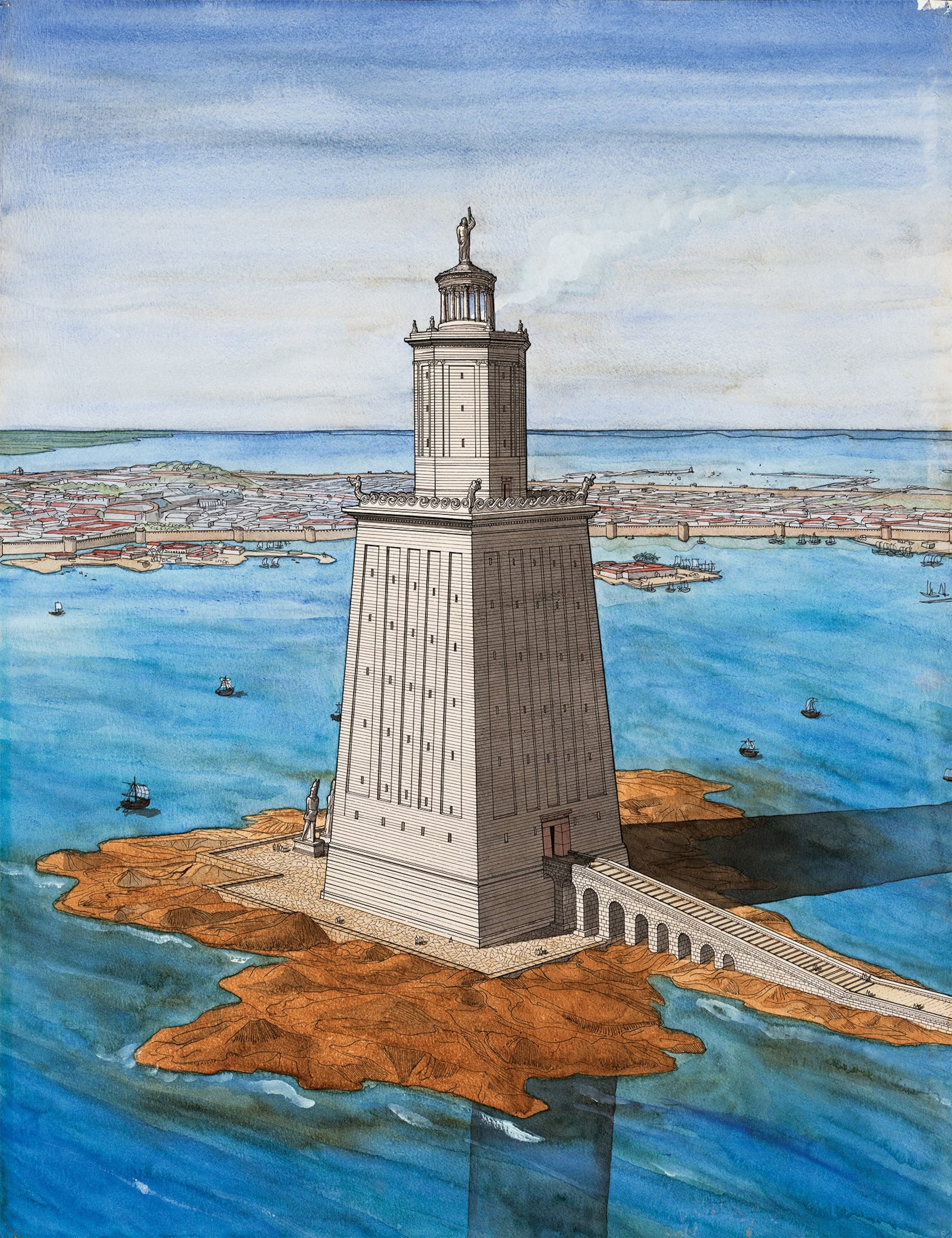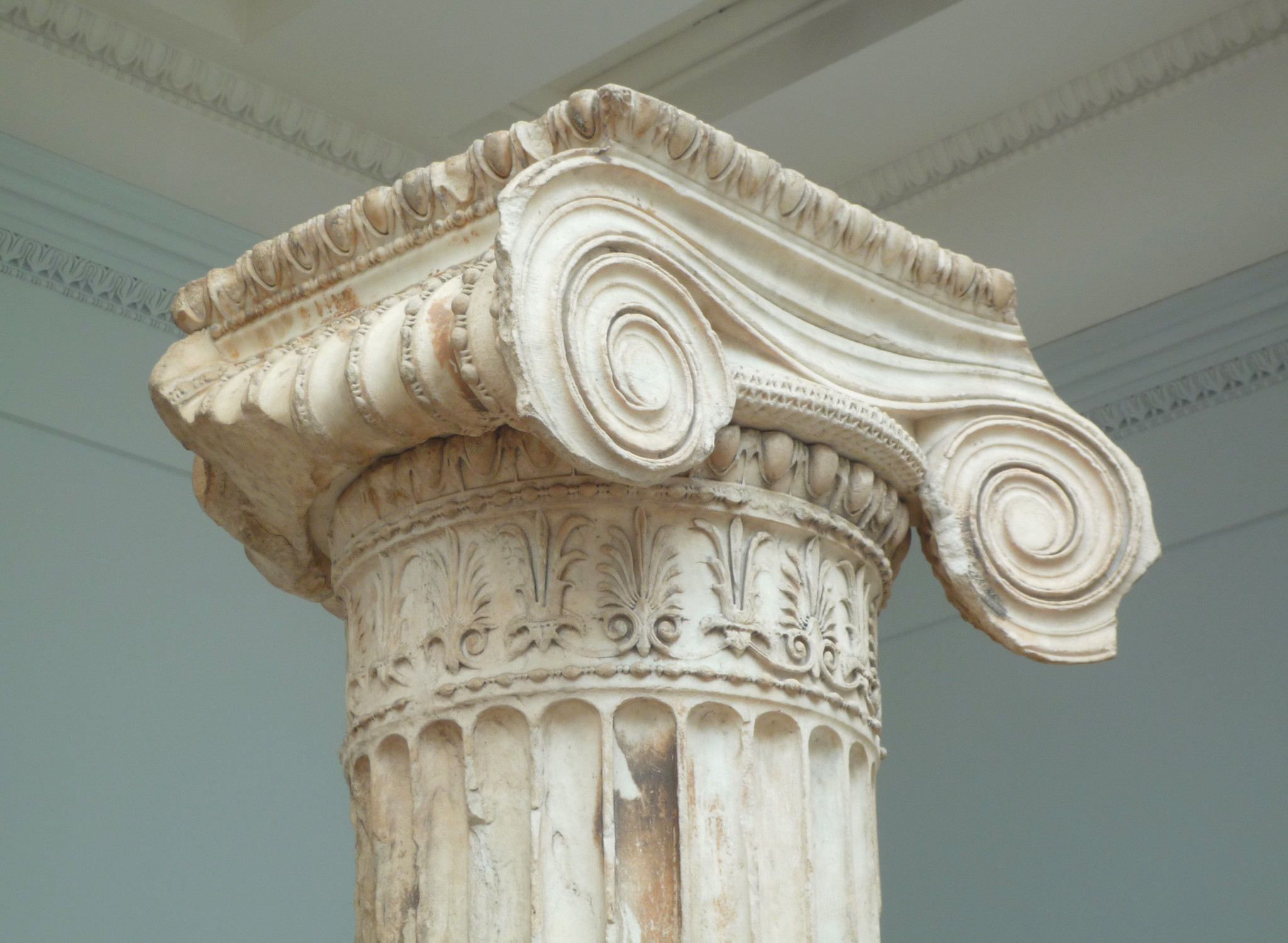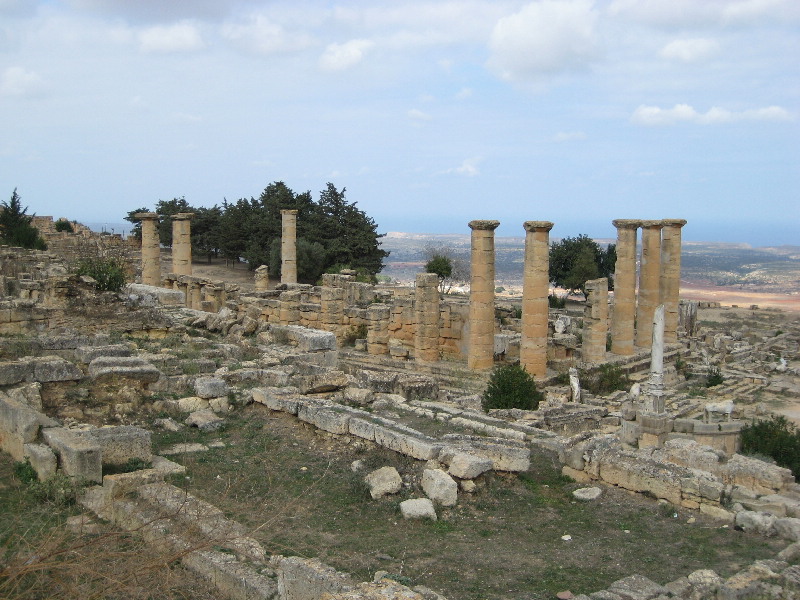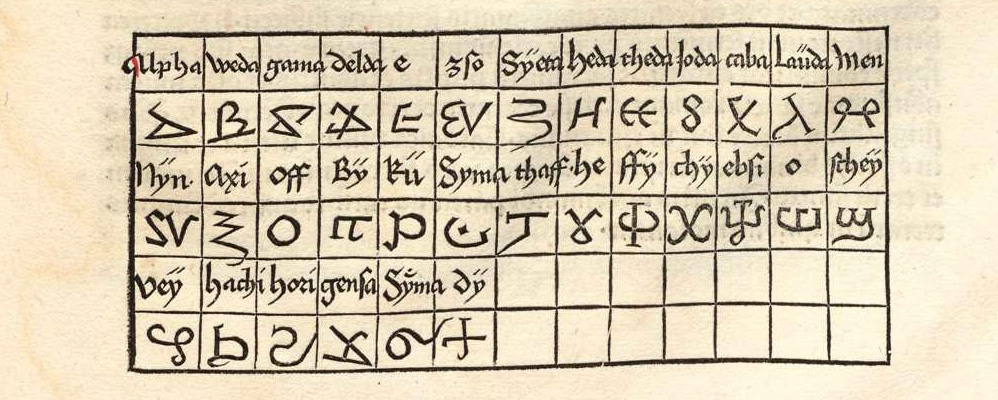Greek Influence On African Cultures
The influence of ancient Greece on civilizations around the world is widely acknowledged. While it is often associated with Europe and the Mediterranean, it's essential to recognize the profound impact Greek culture had on African civilizations as well. In this article, we will explore the fascinating historical interactions and cultural exchanges that define the Greek influenceon African cultures.
Hellenistic Egypt
The Hellenistic period in Egypt, brought about by the rule of the Ptolemaic Dynasty, represents an exceptional chapter in the annals of Greek influence on African cultures. This period of history, spanning over three centuries from 323 BCE to 30 BCE, marks the fusion of Greek and Egyptian traditions, giving birth to a unique and dynamic civilization.
- Alexander the Great's Conquest: The catalyst for this profound influence was the conquest of Egypt by Alexander the Great. After his triumphant campaign through Persia and beyond, Alexander reached Egypt, where he was welcomed as a liberator. In 332 BCE, he founded the city of Alexandria on the Mediterranean coast, a city that would come to symbolize the apex of Greek influence in Egypt and Africa.
- Cultural Assimilation: Under the Ptolemies, who were descendants of one of Alexander's generals, Egypt underwent a gradual but substantial transformation. Greek culture, with its language, art, philosophy, and administrative systems, was embraced by the ruling elite. The Greek language, known as Koine Greek, became the lingua franca of Egypt, facilitating communication between the Greek ruling class and the indigenous Egyptian population.
- The Great Library of Alexandria: Perhaps the most iconic symbol of this cultural amalgamation was the Great Library of Alexandria. Founded by Ptolemy II Philadelphus in the 3rd century BCE, it was a monumental institution of learning, attracting scholars and thinkers from across the Mediterranean world. The library housed countless scrolls and texts from various cultures, making it a true treasure trove of knowledge. It was here that scholars like Euclid, Eratosthenes, and Archimedes conducted groundbreaking research and laid the foundations for modern science and mathematics.
- Art and Architecture: Greek architectural styles and artistic sensibilities were integrated into Egyptian monuments and buildings. Notably, the construction of temples and public buildings adopted Greek architectural elements, including the use of Doric and Corinthian columns. The famous temple of Edfu, dedicated to the falcon god Horus, is a prime example of this fusion.
- Religious Syncretism: In addition to art and architecture, religious beliefs underwent a synthesis of Greek and Egyptian elements. Deities from both pantheons were sometimes merged, creating new, hybrid gods and religious practices. The god Serapis, for instance, was a fusion of the Egyptian Osiris and the Greek Zeus.
- Legacy: The legacy of Hellenistic Egyptis profound. It not only contributed to the preservation and advancement of Greek culture but also played a pivotal role in transmitting this heritage to subsequent generations, including the Roman Empire, which would later absorb Egypt into its dominion. Moreover, the rich intellectual traditions nurtured in Alexandria had a lasting impact on the development of Western thought.
The Myth Of Africa
The myth of Africa holds a special place in the annals of Ancient Greek history, encouraging the Greeks to re-establish their connections with the African continent during the 7th and 8th centuries B.C. This rekindling of ties was a response to the collapse of the Minoan and Mycenaean civilizations around 1100 B.C., which had previously severed Greece's cultural and commercial links with Africa. The reconnection led to a fascinating interplay between art, mythology, and history.
Architectural Marvels
The enduring legacy of Greek architectural influence in North Africa is a testament to the remarkable cross-cultural exchanges that occurred in the ancient world. Greek architectural elements, renowned for their grace and sophistication, found a welcoming home in the lands of modern-day Tunisia and Libya, where they left an indelible mark on the built environment.
The Doric And Corinthian Columns Timeless Greek Elegance
One of the most distinctive hallmarks of Greek architecture is the use of columns, particularly the Doric and Corinthian orders. These architectural elements, characterized by their timeless elegance and structural precision, were introduced to North Africa through the process of Hellenization, as Greek culture spread and melded with local traditions.
Doric Columns - Rugged Grandeur
Doric columns are celebrated for their simplicity and rugged grandeur. They are characterized by their fluted shafts, sturdy proportions, and unadorned capitals. In North Africa, the use of Doric columns in the construction of temples and public buildings became a symbol of architectural strength and classical beauty.
Impact: The incorporation of Doric columns in North African structures not only added an aesthetic dimension but also conveyed a sense of solidity and permanence. These columns were often used to support the weight of massive stone entablatures, enhancing the grandeur of temples and civic buildings.
Corinthian Columns - Floral Elegance
In contrast, Corinthian columns are celebrated for their intricate and ornate design. Characterized by their acanthus leaf capitals, these columns exude an air of floral elegance and artistic refinement. The introduction of Corinthian columns in North Africa added a touch of opulence to architectural compositions.
Impact: The use of Corinthian columns in North African architecture conveyed a sense of luxury and artistic sophistication. These columns often adorned sacred spaces and monumental buildings, serving as a visual testament to the merging of cultures and the desire to create spaces of timeless beauty.
Notable Examples In North Africa
Several notable architectural marvels in North Africa exemplify the fusion of Greek and local design elements:
- The Temple of Hercules in Tunis (Tunisia): This temple, believed to have been constructed during the Roman period, features well-preserved Doric columns that stand as a testament to the enduring legacy of Greek influence in North Africa.
- The Temple of Zeus in Cyrene (Libya): This temple, dating back to the 5th century BCE, is a prime example of Greek influence in North Africa. Its imposing Doric columns and impressive architecture reflect the grandeur of classical Greek temples.
- The Temple of Apollo in Cyrene (Libya): Another remarkable structure in Cyrene, this temple is notable for its intricate Corinthian capitals. It showcases the artistic prowess of combining Greek architectural elements with local craftsmanship.
Legacy And Cultural Exchange
The enduring presence of Greek architectural elements in North Africa is a testament to the richness of cultural exchange in the ancient world. It represents the harmonious blend of Greek aesthetics with local traditions, resulting in architectural marvels that continue to captivate and inspire to this day. These structures serve as a bridge between civilizations, reminding us of the profound impact that the exchange of ideas and artistic expressions can have on the built environment and the preservation of cultural heritage.
Plotinus - The Father Of Neoplatonism
Plotinus, a philosopher of Roman Egypt in the 3rd century CE, stands as a prominent figure in the history of philosophy, playing a pivotal role in the development of Neoplatonism. Born in Lycopolis (modern-day Asyut, Egypt), Plotinus was deeply influenced by Greek philosophical traditions, particularly the teachings of Plato and Aristotle. His philosophical journey led him to synthesize and expand upon these foundations, giving birth to a new philosophical school known as Neoplatonism.
Key Philosophical Tenets:
- Hierarchy of Reality: Plotinus proposed a hierarchical view of reality, with the One (the ultimate source of all existence) at the pinnacle, followed by the divine intellect (Nous), the soul (Psyche), and the material world. This hierarchy was deeply rooted in Platonic metaphysics but developed further by Plotinus.
- The Enneads: His philosophical ideas were compiled into a series of writings known as the Enneads. These writings explored topics such as the nature of the soul, the relationship between the material and immaterial realms, and the concept of the Good as the ultimate principle.
- Influence on Later Thought: Plotinus's Neoplatonism had a profound influence on later European thought, including the works of philosophers like Augustine of Hippo, who integrated Neoplatonic ideas into Christian theology. Furthermore, Neoplatonism's emphasis on the pursuit of intellectual and spiritual enlightenment left an enduring mark on the history of philosophy.
Augustine Of Hippo - Synthesizing African And Greek Philosophical Traditions
Augustine of Hippo, one of the most influential Christian theologians and philosophers in history, was born in Thagaste (modern-day Souk Ahras, Algeria) in the 4th century CE. Augustine's intellectual journey was marked by a synthesis of African and Greek philosophical traditions, particularly Neoplatonism.
Key Contributions
- Conversion and Spiritual Quest: Augustine's early philosophical pursuits led him to skepticism, Manichaeism, and eventually to Neoplatonism. His profound spiritual transformation and conversion to Christianity were informed by his engagement with Neoplatonic ideas, particularly the Neoplatonic concept of ascent toward divine truth.
- Integration of Neoplatonism into Christian Thought: Augustine's writings, such as "Confessions" and "The City of God," reflect his intricate integration of Neoplatonism into Christian theology. He adapted Neoplatonic concepts, such as the hierarchy of being and the role of divine illumination, to Christian thought.
- Influence on Christian Theology: Augustine's synthesis of African, Greek, and Christian philosophical traditions laid the foundation for Western Christian theology. His ideas, particularly his concept of original sin, profoundly shaped the theology of the Western Church and continue to be a subject of scholarly discussion.
Greek Language And African Scripts - A Transcultural Linguistic Legacy
The influence of the Greek language and its rich literary tradition on the African continent extends beyond mere linguistic borrowings. It represents a profound historical exchange that shaped the development of scripts used in African languages, exemplified notably by the Coptic scriptin Egypt.
The Greek Alphabet
The Greek alphabet, with its 24 letters, stands as a testament to human ingenuity in the realm of writing and literature. It evolved from the Phoenician script and became the foundation for countless literary masterpieces and philosophical treatises. Greek culture, known for its reverence for the written word, fostered a tradition of intellectual exploration and artistic expression that would leave an enduring legacy.
The Emergence Of The Coptic Script
The Coptic script, a prime example of Greek linguistic influence in Africa, emerged as a result of the interaction between the Greek and Egyptian civilizations. Coptic, the language for which this script was primarily used, was the last stage of the Egyptian language and had evolved over centuries. However, it was not until the Hellenistic period and the subsequent Roman rule of Egypt that the Greek alphabet played a transformative role.
Greek And Coptic Script
The Greek alphabet provided the foundation upon which the Coptic script was built. Certain Greek letters were adapted and modified to represent unique phonemes and sounds in the Coptic language. The result was a script that combined Greek and Demotic Egyptian elements, which reflected the linguistic diversity and cultural fusion occurring in Egypt.
A Bridge to Egypt's Christian Heritage: The Coptic script was instrumental in the development of Christian literature in Egypt, including the translation of the Bible into Coptic. The adaptation of Greek letters enabled the preservation and propagation of Christian texts, contributing significantly to Egypt's Christian heritage.
The Broader Impact On African Scripts
The influence of the Greek alphabet in Africa extended beyond Egypt. Elements of the Greek script also found their way into scripts used in other African languages. The process of adaptation and modification was not limited to Egypt, as different regions engaged with Greek culture and incorporated its linguistic elements into their own scripts.
Preservation Of African Languages
In Many Cases, The Adoption Of Greek Script Facilitated The Preservation Of African Languages And Cultural Traditions. Local Languages, When Written Using The Greek Script, Gained A Degree Of Permanence And Legibility That Aided In Their Survival.
Diverse Cultural Expressions: The Interaction Between Greek And African Languages Through Scripts Allowed For A Rich Tapestry Of Cultural Expression. African Languages Could Be Employed In Various Literary Forms, Including Religious Texts, Poetry, And Historical Records.
People Also Ask
Did Greeks Interact With Africans?
Greeks did interact with Africans in ancient times. One of the most significant interactions was during the Hellenistic period, which followed the conquests of Alexander the Great. Greeks established colonies, trading centers, and settlements along the African coast, particularly in Egypt and North Africa. This interaction facilitated cultural exchanges and influenced various aspects of African civilization.
How Did The Ancient Greeks View Africans?
The ancient Greeks had a diverse range of perceptions about Africans, often influenced by their limited direct interactions and reliance on secondhand accounts. Greeks referred to the people of northern Africa as "Aethiopians" or "Ethiopians," a term that encompassed various African groups. While there were stereotypes and myths, Greek views of Africans were not monolithic. Some Greeks admired the exoticism and uniqueness of African cultures, while others perpetuated stereotypes, often portraying Africans in mythological tales or art.
How Did The Greeks Influence Culture?
The Greeks had a profound influence on various aspects of culture, including art, philosophy, language, and architecture. Their contributions to culture were not limited to Europe but extended to regions like North Africa. For instance, Greek architectural styles, such as the use of Doric and Corinthian columns, left a lasting impact on North African structures.
Additionally, the Greek language and alphabet played a role in the development of scripts used in African languages, such as the Coptic script in Egypt. This cultural exchange enriched both Greek and African cultures, creating a fascinating tapestry of influences and innovations.
For more information on planning your next trip, you can visit this link.
Conclusion
The Greek influence on African cultures is a testament to the interconnectedness of civilizations in the ancient world. It highlights the capacity of cultures to adapt, evolve, and enrich one another through exchanges of knowledge, art, and ideas. The enduring legacy of Greek influence in Africa continues to shape the continent's cultural landscape, serving as a reminder of the vibrant tapestry of human history and interaction.
In a world where global cultural exchange remains essential, understanding these historical connections is a vital step towards appreciating the diversity and complexity of our shared human heritage. Greek influence in Africa is a remarkable chapter in this ongoing narrative, demonstrating the enduring power of cross-cultural interactions.




